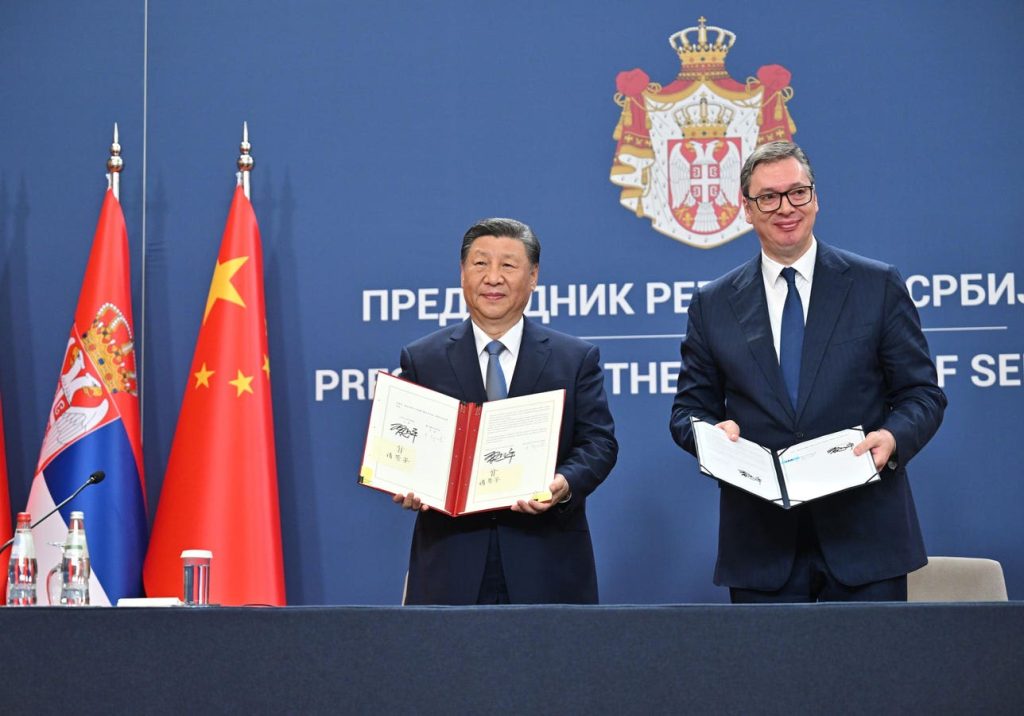Chinese President Xi Jinping’s visit to Europe this week has drawn attention to the economic benefits of ties with China, particularly in Serbia, one of the countries Xi is visiting. The focus in Serbia is on potential infrastructure and business investment from China, which is welcomed by local politicians and citizens. According to Forbes Serbia Editor Ivan Radak, Chinese investment has boosted manufacturing and created jobs in Serbia, providing a faster alternative to engaging with bureaucratic European institutions.
China’s investment in Serbia, a nation with a population of nearly seven million, has made it one of the country’s largest foreign investors. The contrast in population and income levels between China and Serbia is stark, but both countries have maintained ties to Russia. During Xi’s visit, 29 agreements were signed between China and Serbia, highlighting the growing relationship between the two countries. Chinese investors, such as HBIS Group and Zijin Mining, have made significant investments in Serbia, with trade between the two countries set to increase further following a Free Trade Agreement.
The China-Serbia Free Trade Agreement is set to take effect on July 1, with trade currently in China’s favor but showing potential for growth in Serbia’s exports to China. Radak notes that there is debate in Serbia on whether the agreement will benefit Chinese companies more than Serbian companies, given the difference in production volumes and proximity to China. Serbian businesses are also hindered by a lack of information about the Chinese market, according to Radak, who has extensive experience in economic journalism and communications.
Xi’s visit to Serbia was part of a European tour that also included stops in France and Hungary. The two countries signed 29 agreements during Xi’s visit to Belgrade, with the Chinese leader using the occasion to reference the 25th anniversary of the U.S. bombing of China’s embassy in 1999. Chinese investment in Serbia has grown significantly over the past quarter century, reaching levels comparable to the combined investment of all 27 European Union member states, solidifying the relationship between the two countries.
Chinese companies such as HBIS Group, Zijin Mining, and Minth have made substantial investments in Serbia, contributing to the country’s economic development. The Serbian government’s welcoming attitude towards Chinese infrastructure projects contrasts with criticism in other countries that such projects under the “One Belt, One Road” program lead to unsustainable debt. Despite differing opinions on the benefits of the Free Trade Agreement with China, Serbia is poised to increase its trade with the Asian economic powerhouse, with opportunities for growth in both exports and investments.













